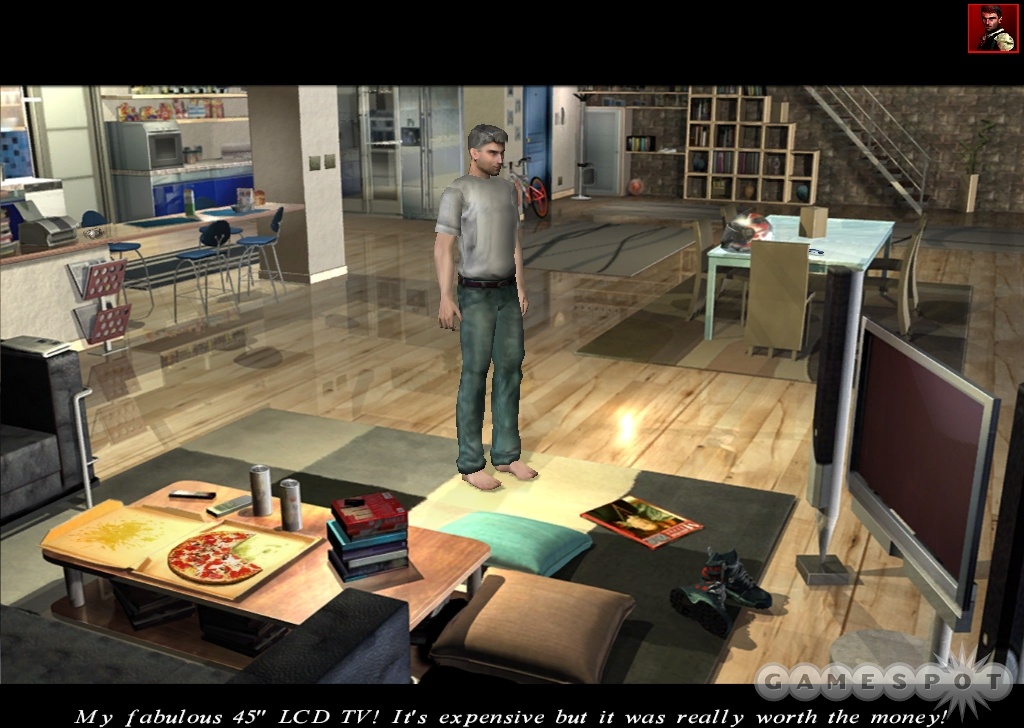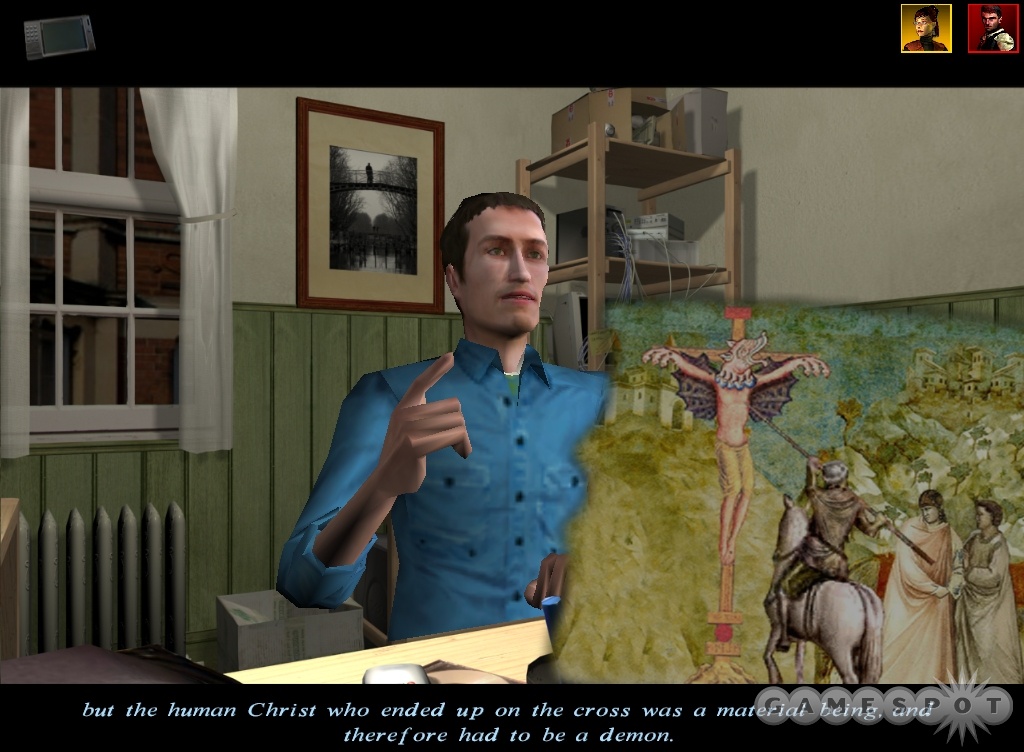Apparently, there is no escape from the Da Vinci Code phenomenon. Hack novels about ancient Christianity have been clogging bookstore shelves for a good three years now thanks to author Dan Brown, and this trend has now come to adventure gaming. Artematica Entertainment's take on yet another insidious Catholic conspiracy is Belief & Betrayal, a subpar point-and-click affair that somehow manages to spin a yarn even more ridiculous than one of Brown's potboilers. Absurd scripting, annoying voice acting, and nonstop nonsensical pixel hunts make it no surprise that this dire scheme has been kept under wraps for the better part of 2,000 years.
You play Jonathan Danter, a reporter for a magazine called the Manhattan Mirror who is dragged into the investigation of yet another Earth-shaking secret that the Catholics have been keeping from the world. Sooner than you can say "Knights Templar," the journalist and his newfound friends from a shadowy Vatican secret society called the Legacy are scouring Europe for clues. Their goal is a MacGuffin called the Imago Sanctissimus, a mysterious ancient artifact that can apparently answer all questions about everything like some kind of Magic 8-Ball.

Many plot points make no sense, beginning with the bizarre opening when Danter dumps a work assignment in Miami and immediately flies to London after a phone call from a Scotland Yard detective who tells him that his life may be in danger. Danter doesn't seem the slightest bit like a real character. He laughs off huge revelations like the news that his Uncle Frank didn't actually die 10 years ago, as his family always pretended, and that the not-dead guy was actually a spy for the Vatican who was recently murdered as part of a bizarre series of ritualistic serial killings. You would think that these sorts of surprises would prompt a few shocking gasps, but Danter just keeps loading on the quips and unloading his big catchphrase, "Cat's whiskers!" Yes, seriously.
Danter has to be one of the most irritating protagonists ever to grace an adventure game. He's obviously supposed to be some kind of a bad-boy reporter with an attitude, but he's characterized more like an obnoxious teen than a pro journalist who travels all over the world writing exposes. Horrific voice acting doesn't help; his lines are often read so quickly that you get the impression that the actor was late for a bus. The only saving grace is that you also occasionally get to take control of Danter's partners. Kat, a cool spy type, and Damien, a stereotypical computer nerd, are voiced extremely well. So they seem far more believable and far less grating, even if they're swimming upstream against the overall absurdity of the plot.
The gameplay isn't any more impressive than the story and acting. Belief & Betrayal is a traditional adventure in every way, which means that it looks and plays like a game from a decade ago. You guide 3D protagonists through 2D screens, pointing and clicking to look at and manipulate objects just as in Sierra's classic adventures from the late 1990s. Visuals appear to date from that era as well. The game is locked in 1024x768 resolution, which leaves it blurry and pixelated on a modern widescreen monitor. Even worse, most screens are impenetrably murky. Quest items are hidden away in dark corners and are often impossible to discover without guiding the cursor through pixel hunts. The sheer annoyance of having to scroll around looking for a needle in a haystack results in a great deal of tedium. These searches are made even more frustrating due to the way that just about all of the game's screens are cluttered with a half-dozen or more objects that serve no purpose but to waste your time and provide Danter with the opportunity to make another inane wisecrack.

Even when you can locate vital items, the game doesn't provide a great deal of feedback letting you know how to use them, or even if they are useable. You frequently need to click on points of interest two or three times to find a hidden object, and many times you're not given any clues that such multiple clicks would be rewarding. Near the end of the second chapter, for instance, Danter finds a pile of rubbish in a London alleyway that conceals a bottle of wine. But you won't find this out by clicking on the pile once, twice, or even thrice. You have to incessantly click on it to get beyond Danter's initial "ew, I'm not sticking my hands in there" reaction, and then click again to prompt him to start kicking the rubbish more than once. Only then is the bottle of wine revealed. This is probably the most extreme example of this missing feedback issue in action, although you will frequently wander by important objects due to the absence of even the slightest hint that you're on the right track. Anyone who finishes this game without a walk-through deserves some kind of cash prize.
The only really noteworthy feature of Belief & Betrayal is its occasionally controversial storyline, but even the revelations that it holds about "the very foundations of the Church" aren't going to wow anyone these days. Couple this been-there, done-that vibe with an infuriating lead character and tedious gameplay and you've got a recipe for making sure that these ancient Christian secrets stay hidden.



